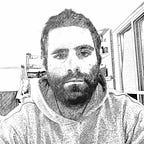It has gradually become clear to me what every great philosophy up till now has consisted of — namely, the confession of its originator, and a species of involuntary and unconscious auto-biography; and moreover that the moral (or immoral) purpose in every philosophy has constituted the true vital germ out of which the entire plant has always grown -
Nietzsche, Beyond Good and Evil
What Nietsche points out in a few sentences, is that each philosopher before him was unknowingly disguising their subjective philosophy in objective language. To understand why this is controversial, you would only need to read any major philosophical work of the past. What you will notice is that the writer is setting forth a framework or set of principles that can, in contrast to other more feeble minds, explain how the world really works, and how people ought to behave. Any of these philosophers would be shocked at such a rude critique aimed directly at them, especially by an unknown German philologist.
The secret that no one would ever want to admit is that their opinion, their way of seeing the world, is a reflection of themselves rather than of what is objectively true. Few people are professional philosophers. Even fewer people desire to become professional philosophers (some philosophers are thinking about quitting).
But regular people act like the professional philosophers that Nietzsche is alluding to. They impose their ideas, allude to self-serving examples, and ignore everything else. Confirmation bias is universal. Yet the problem is not that people interpret the world differently, but that the existence of so many different interpretations suggests that all interpretations are of equal quality. Or to compel people to avoid interpretation altogether, and to stick to the facts.
Why? There is no way of avoiding an interpretive framework. The “sticking to the facts” has a subjective slant. Which facts exactly? Why?
David Hume wrote that you “cannot derive an ought from an is.” Implicitly, each cautious person understands this. Since you cannot derive an ought from an is, it becomes safe to stick to discussing what “is”, and avoid being culpable for a mistaken “ought”. While this is sound advice for someone who doesn’t want to tell others what stocks to invest in, it’s not always good advice.
If your friend asks for your opinion, you cannot simply lay out the facts — you must represent a position, no matter how tenuous your arguments. You must stand for something. To refuse to do so means you stand for nothing, which itself is something, but unlikely to be what you intended to stand for in the first place.
De facto, you have subscribed to an interpretation of the world, consciously or unconsciously. If you don’t wrestle with your own subjective interpretation, or the subjective interpretations of others, then you become a victim to your biases, unwittingly.
The response to Nietzsche is not to transform yourself into a disembodied processor of facts — an impossible feat in light of what we know about how the brain functions. The old idea that logical decisions come from a cool, detached mind has been undermined since the mid nineties when Damasio published his book Descartes’ Error.
Damasio showed that patients with damage to the part of the prefrontal cortex that processes emotions struggle with making even routine decisions.
Intelligent interpretations are needed just as much as accurate facts. When smart people refuse to give people advice for fear of inadvertently being mistaken, they don’t realize that advice will be given nonetheless.
You have probably heard of the Dunning-Kruger effect — a much talked about phenomenon that states that incompetent people will overrate their intellectual abilities. And there is the Imposter syndrome, on the opposite end of the scale, where more-intelligent people underrate their abilities, and have a fear of being exposed as a fraud.
In Week 12- Via Negativa, I discussed the value of negative knowledge. It is easier to build a foundation from negative knowledge than from positive knowledge. It is hard to know which kinds of foods are best for you, without extensive experimentation and reading, but it is trivial to know which foods are the worst for you, your stomach will let you know.
If your friend asks for advice, avoid asking them what they want — they wouldn’t be seeking advice if they already knew. Instead, ask them what they don’t want, at all costs.
But there is another thing to be said about lesser evils. It is potentially destructive to misinterpret the facts, but to object to any interpretation whatsoever may be the greater evil. It may be destructive to give a friend bad advice, but it may be worse to give them no advice at all.
Another platitude, “the perfect is the enemy of the good” comes to mind. Take the field of psychology or philosophy, where some of the questions that are being asked are: “what is human nature?” or “what should human beings aim towards?” — these aren’t questions that can be answered without bias. Neither can open ended questions such as “what kind of job should I look for?” or “what kind of city should I live in?”
The useful answer would be the one that holds a position and defends it. So that when your friend wonders what they should do about something, you should not react with the objectivity of the psychoanalyst or the scientist, but from the perspective of a human being, who has chosen which side of the argument they are on, and will give you their reasons for being there.
Originally published at http://unearnedwisdom.com.
